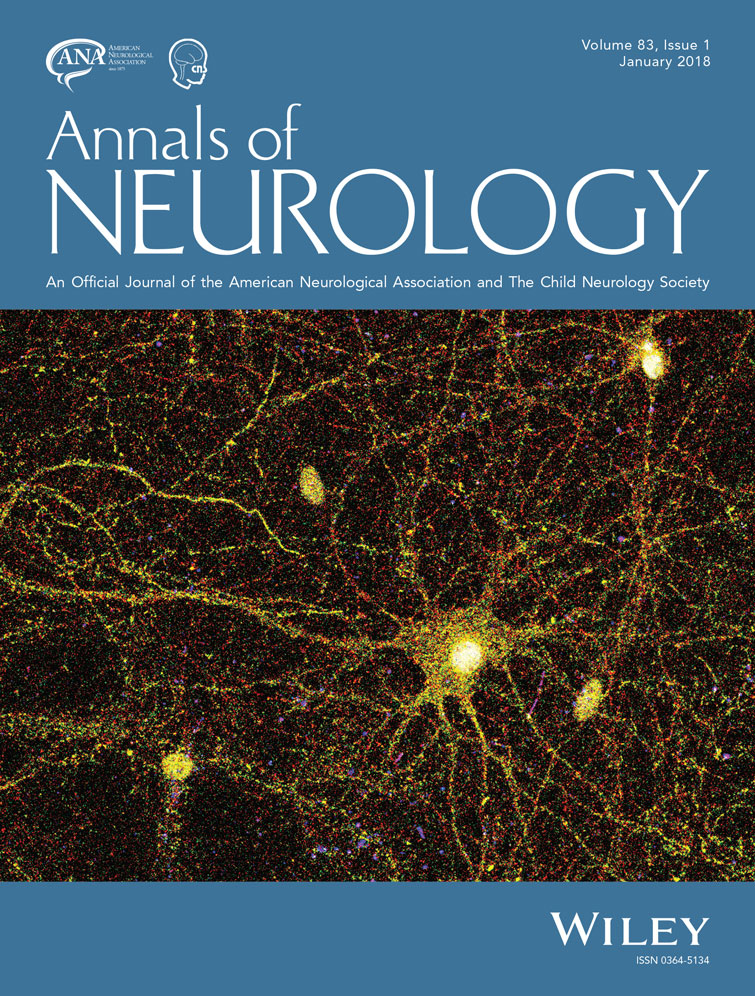Homozygous boricua TBCK mutation causes neurodegeneration and aberrant autophagy
Abstract
Objective
Autosomal-recessive mutations in TBCK cause intellectual disability of variable severity. Although the physiological function of TBCK remains unclear, loss-of-function mutations are associated with inhibition of mechanistic target of rapamycin complex 1 (mTORC1) signaling. Given that mTORC1 signaling is known to regulate autophagy, we hypothesized that TBCK-encephalopathy patients with a neurodegenerative course have defects in autophagic-lysosomal dysfunction.
Methods
Children (n = 8) of Puerto Rican (Boricua) descent affected with homozygous TBCK p.R126X mutations underwent extensive neurological phenotyping and neurophysiological studies. We quantified autophagosome content in TBCK−/− patient-derived fibroblasts by immunostaining and assayed autophagic markers by western assay. Free sialylated oligosaccharide profiles were assayed in patient's urine and fibroblasts.
Results
The neurological phenotype of children with TBCK p.R126X mutations, which we call TBCK-encephaloneuronopathy (TBCKE), include congenital hypotonia, progressive motor neuronopathy, leukoencephalopathy, and epilepsy. Systemic features include coarse facies, dyslipidemia, and osteoporosis. TBCK−/− fibroblasts in vitro exhibit increased numbers of LC3+ autophagosomes and increased autophagic flux by immunoblots. Free oligosaccharide profiles in fibroblasts and urine of TBCKE patients differ from control fibroblasts and are ameliorated by treatment with the mTORC1 activator leucine.
Interpretation
TBCKE is a clinically distinguishable syndrome with progressive central and peripheral nervous system dysfunction, consistently observed in patients with the p.R126X mutation. We provide evidence that inappropriate autophagy in the absence of cellular stressors may play a role in this disorder, and that mTORC1 activation may ameliorate the autophagic-lysosomal system dysfunction. Free oligosaccharide profiles could serve as a novel biomarker for this disorder as well as a tool to evaluate potential therapeutic interventions. Ann Neurol 2018;83:153–165
Potential Conflicts of Interest
Nothing to report.




